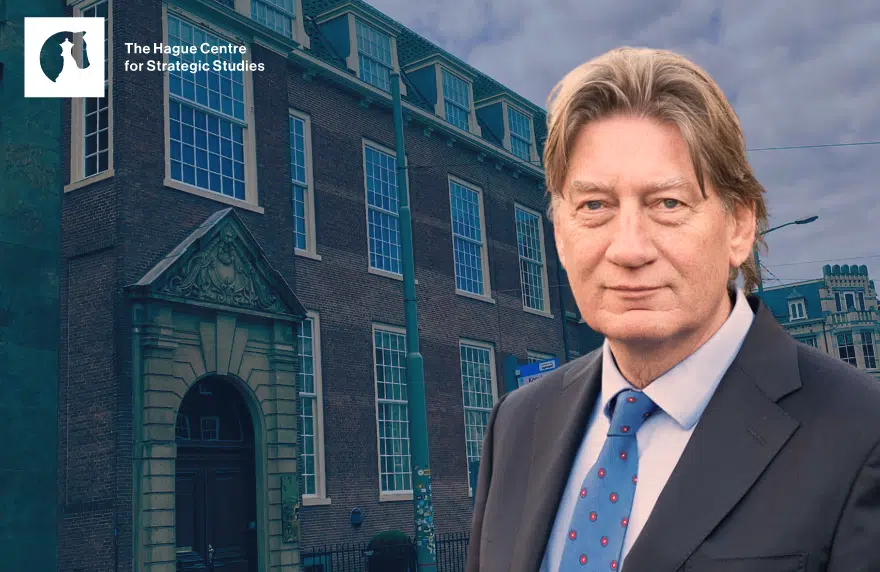De Slowaakse hoofdstad Bratislava was een plaats waar wereldleiders bijeenkwamen, visies deelden en plannen presenteerden. De Franse president Macron erkende hier dat zijn toenadering tot Poetin mislukt was en koos hier onvoorwaardelijk voor Oekraïne. EU-voorzitter Von der Leyen stak hier de hand uit naar de Balkan om die landen uit de klauwen van het Kremlin te houden.
Was, want dit jaar verhuisde de Globsec-conferentie, de belangrijkste bijeenkomst over het buitenlands- en veiligheidsbeleid in Midden-Europa, naar Praag. De conferentie zelf bleek vluchteling te zijn geworden. Verdreven door populistische premier Fico die samen met een extreemrechtse coalitiepartner in Slowakije een nationalistisch, anti-EU en pro-Russisch beleid voert. Hij ziet de conferentie als een feestje van anti-Russische globalisten die achter Soros en het World Economic Forum aanlopen.
In Praag deed het hardnekkige gerucht de ronde dat Von der Leyen aanvankelijk niet wilde komen omdat ze dacht dat ook deze 19de aflevering in Bratislava zou worden gehouden. Praag vond ze prima, ze gaf daar haar eerste publieke speech na haar herverkiezing en kondigde aan dat zij een defensiecommissaris in haar commissie zou benoemen.
Ze prees de dynamiek van de Poolse economie, constateerde dat Midden- en Oost-Europese landen gelijk hadden met hun vrees voor Poetin en concludeerde dat binnen de EU de politieke en economische macht naar het oosten begon te verschuiven.
Die constatering gold zeker niet voor Slowakije. Dat land werd genegeerd. De Tsjechische president Peter Pavel, die de verhuizing naar zijn hoofdstad voluit steunde, draaide er diplomatiek omheen door te zeggen dat hij zijn land met deze bijeenkomst een hoger profiel in Europa en de wereld wilde geven. Het omgekeerde was daarmee waar voor Slowakije.
Fico is alleen geïnteresseerd in zijn eigen macht
Natuurlijk is een dergelijk evenement een elitefeestje, maar dit is wel de elite die de dienst uitmaakt. De stoet aan staatshoofden, regeringsleiders en ministers was wederom indrukwekkend. Fico interesseert die contacten kennelijk geen lor en isoleert zo zijn land. Hij is geïnteresseerd in zijn eigen macht en niet in de positie van zijn land, die staat of valt met internationale reputatie. Wordt die aangetast, dan valt de cruciale ‘gunfactor’ voor zijn land weg. Dat zag je in Praag voor je ogen gebeuren.
De unieke verhuizing van de conferentie symboliseert de uitdaging waar Europa voor staat: hoe houden we onze landen relevant in een wereld van geopolitieke strijd en populisme. Polen is onder Donald Tusk teruggekeerd tot het Europa waarvan de waarden duidelijk in het EU-verdrag zijn opgesomd, zoals democratie, individuele vrijheid en vrijheid van meningsuiting. Die staan nu bij ons op de tocht, constateerde een bevriende Slowaakse oppositieleider terecht.
Orbán zit nog steeds stevig in het zadel. In de Duitse deelstaten Thüringen en Saksen boekten de radicalen van de anti-Europese en pro-Russische AfD grote successen. In Franrijk is de radicaalrechtse Le Pen in opkomst. En in Nederland kon de huidige coalitie alleen worden gevormd toen de PVV zijn respect voor de rechtstaat uitsprak.
Maar het echte probleem is dat in heel Europa en in Amerika een groot deel van het electoraat genoeg heeft van de elite zoals die in Praag bijeenkwam. Dit werd ook in Praag erkend. Maar antwoorden op de vraag hoe het vertrouwen teruggewonnen kan worden bleven uit.
Rob de Wijk, Trouw, 5 September 2024
Rob de Wijk is hoogleraar internationale relaties en veiligheid aan de Universiteit Leiden en oprichter van het Den Haag Centrum voor Strategische Studies (HCSS). Hij schrijft wekelijks over internationale verhoudingen. Lees zijn columns hier terug.



